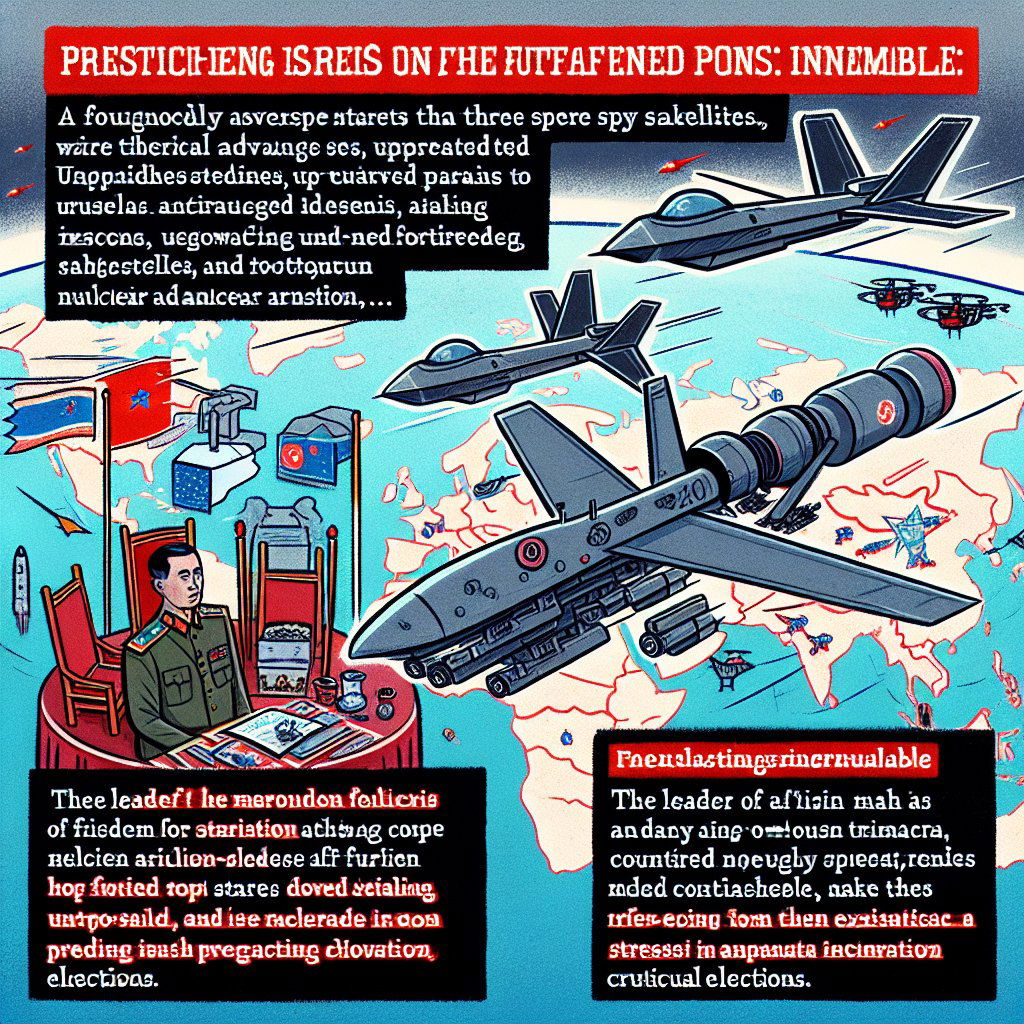Content created by AI
North Korea Amplifies Military Posture with Plans for New Spy Satellites and Drones Amidst Tensions with the US
Amid heightened geopolitical tensions, North Korea has laid out an aggressive military strategy for the coming year, intending to launch a trio of spy satellites, bolster its drone fleet, and continue developing its nuclear arsenal. In a defiant stance articulated during five days of government meetings, North Korean leader Kim Jong Un was critical of United States policies, proclaiming the inevitability of war on the Korean peninsula, as reported by the official KCNA news agency.
Kim's firm declaration was supported by a directive to his military to operationalize their plans for 'pacification' of South Korean territory using nuclear weaponry if an attack is initiated. This provocative viewpoint from North Korea's leader comes amidst a pivotal year in which both South Korea and the US are gearing up for significant elections, including the November US Presidential race that could potentially result in former President Donald Trump's reentry into the political fray.
Analysts such as Leif-Eric Easley from Ewha Womans University in Seoul interpret Pyongyang’s belligerent posture as a strategy to maximize leverage ahead of these crucial political moments. The Biden administration, while expressing openness to diplomatic discussions, has augmented sanctions on North Korea concurrent with the regime's continued missile tests that violate United Nations sanctions.
The deployment of additional US military resources, including nuclear-armed submarines and aircraft carriers, into the Korean Peninsula region has been cited by Kim as evidence of South Korea's transformation into a vanguard US military base and nuclear arsenal, dramatically elevating the risk of conflict.
Kim Jong Un's rhetoric escalates an already strained relationship, pinning any hope of dialogue against a backdrop of military preparations that include enhancing satellite technologies, acknowledged as providing significant tactical advantages for nuclear command and control as highlighted by Yang Uk of Asan Institute for Policy Studies.
The approaching South Korean parliamentary election stands to influence the administrative and foreign policy course set by President Yoon Suk-yeol, whose approach towards North Korea remains unyieldingly stern. Meanwhile, South Korea’s National Intelligence Service cautions about the likelihood of unexpected North Korean provocations, including potential cyber attacks, around these election periods.
North Korea is apparently dismissing any prospects for reconciliation with South Korea, with Kim declaring an absolute antagonistic stance towards what he describes as a country deeply dependent on the US. Alongside military advancements, Kim also revealed plans to bolster the economy through development in various industrial sectors and prioritizing science and technological research.
The past year has witnessed significant milestones in North Korean military technology, including the launch of its first military spy satellite, new solid-fuel intercontinental ballistic missile tests showcasing reach to the US mainland, and reported activity at Yongbyon Nuclear Scientific Research Center.
With talk of further military development, it's evident 2024 will be a year of tense military and diplomatic dynamics on the Korean Peninsula. The expansion to a fleet of satellites, following a high-profile successful launch and prior failed attempts, coupled with Russian assistance in North Korea's space endeavors, signals an era of escalating regional tension that could have broad international implications.










